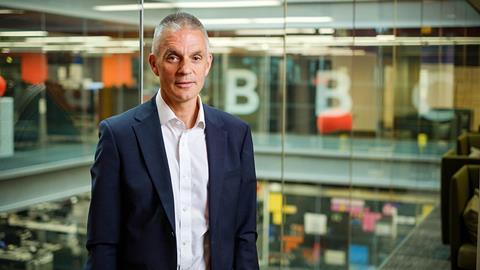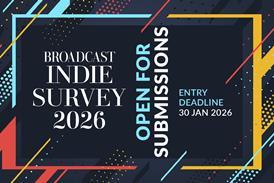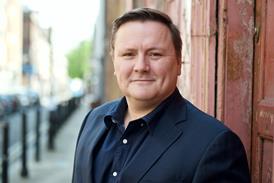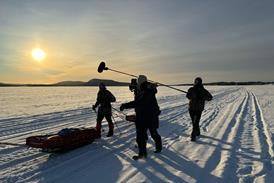Harnessing AI for good and moving between iPlayer, Sounds and archive on the agenda
A progressive licence fee, harnessing the power of AI to do good, and a push on commercial partnerships with tech and content giants are all on the agenda at the BBC, following a wide-ranging speech by director general Tim Davie.
Speaking at an RTS event that was live-streamed to all BBC staff, Davie backed the notion of a universal licence fee and suggested the existing model could be tweaked and revised.

He said that any move away from a universal fee towards subscription would “inevitably shape the editorial content that it funds… We should be appropriately cautious about unpicking a multi-genre BBC that leads the market rather than is simply about market failure.”
Instead, the BBC will “proactively research how to reform the licence fee post-2028 – looking at its scope, how it could be more progressive, and making sure its enforcement is fair and proportionate”.
Davie also said there are ways the licence fee could be made progressive without resorting to blunt means-testing, such as mirroring the way some people who receive Pension Credit do not pay for their licence.
As part of its work on the funding model debate, the corporation will next year kick off its biggest-ever public consultation. It will get feedback from hundreds of thousands of people “with an open mind”, with a view to helping shape its strategy.
Davie was speaking to a packed auditorium featuring senior representatives from the BBC’s broadcasting peers and rivals, the production community, on-screen talent and policy executives.
His tech-heavy speech revealed the BBC wants to “deploy AI on our terms, always holding on to our published principles”.
The BBC will not compromise on human creative control, support rights holders and sustain our editorial standards, but is gearing up to launching tools that help it “build relevance”.
“We are now working with a number of major tech companies on BBC-specific pilots and we will be deploying the most promising ones in coming months,” Davie said.
“We want to increase fact-checking of sources, use translation and reformatting technology to take our best content across media and languages, and offer more tailored learning on services like Bitesize.”
The tech push includes developing “ethical algorithms” that dramatically increase personalisation but do not result in an individual’s recommendations becoming more and more narrowed.
“We want to keep other factors in play like serendipity (think the average Radio 4 day); curiosity; and an interest in what our BBC editors may judge to be important stories.”
Another element of technological change is the BBC’s ambition to reshape its digital operations into a single experience.
Davie said: “We have been undertaking a total rewiring of the data and ‘horizontal’ systems such as ‘search’ that underpin our online offer. In the future BBC, you will be able to move across the content seamlessly, not limited by media type. If you are interested in a topic you should be able to easily mine the whole BBC, from archives to live output, audio/video World Service Local.”
Another key plank of the speech was a promise that the BBC will look to work more strategically with major external commercial partners “to increase its horsepower” in programming and technology.
“Our recent deal with Disney on Doctor Who is a good example of how we can work to deliver more value through third-party funding, while protecting content for UK audiences. Also, we will need to work more strategically with the best tech companies to co-create solutions and form business partnerships that save money, inject capital and create better products,” Davie said.





























No comments yet